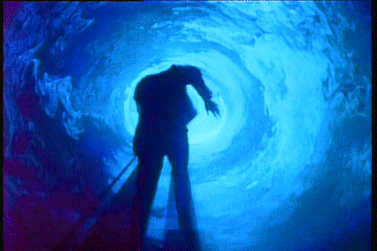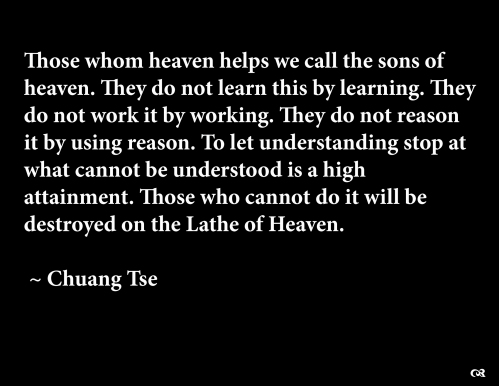Spoilery book review follows! If you’re interested in ’70s sci-fi classics and likely to read the novel in the near future you might want to hold off reading. If anyone wants to borrow it you’re welcome, I’m thinking it’s definitely right up Retrolechuck’s street for one.
I’ve not read any of Le Guin‘s novels previously, only a couple of short stories, so I wasn’t quite sure what to expect from this “SF Masterwork“. The plot follows George Orr, an illegally self-medicating man sent to the psychiatrist because he believes his dreams have the power to retroactively alter reality. Written in 1971, the book is set in a series of twenty-first century dystopic futures. In essence it’s HG Wells‘ short story The Man Who Could Work Miracles as written by Phillip K Dick.
The story is recognisable as a straightforward cautionary tale about the dangers of magical wishes, except that’s not how it’s presented at all despite my heavy use of the W-word. Interestingly, it’s not the timid, passive protagonist who sets out to exercise this power, but his psychiatrist, who does so using a combination of hypnosis, a glorified Vulcan nerve pinch and the Augmentor (a black box device a bit like a supercharged interventionist encephalograph). Repeatedly putting Orr to sleep the psychiatrist/oneirologist Haber gives him instructions to dream “effectively” in order to cause changes in the world. I particularly like how the novel leaves the reader as much in the dark as the hypnotised George himself is as to what exactly Dr. Haber has sought to bring about.

The changes in reality triggered by Orr‘s dreams ripple backwards through time, as though the universe itself is rationalising the sudden appearance of a pink dog or aliens from Aldebaran. The fact that history has altered each time is only noticeable to him and those in close proximity at the moment of the change (a rule which loosens later in the novel). Usually in these sorts of stories, the twists in intent or meaning of wishes are presented as a caprice of whatever entity or underlying magical law is being employed. Here, Haber rather castigates his imperfect tool Orr for the mental failings which he holds responsible for the reinterpretation of his desired changes. The exact nature of the changes isn’t immediately consciously available to the characters as their two sets of memories (how things last-were and how they always-were now) reconcile. There’s good, limited use of neologisms, with a great moment where one character automatically uses a new word before even having the chance to comprehend what that means for how the world is now ordered.

As the book progresses we learn that Orr first exercised his reality-altering power in April 1998, as the real world ended in nuclear holocaust. This seed, suggestive of a “but it was all a (dying) dream and/or purgatory” reveal is never followed up though, for which I was grateful. One of the great things about Speculative Fiction/Science Fiction/Sci-Fi/scientifiction/SF is how it provides an easy framework for literalising metaphor and subtext. One of the worst things is how that is commonly used. Sturgeon’s Law, I suppose.
The third character in this sparsely-populated novel is probably the best-drawn, despite the fact we see less of her than the other two. Introduced as the wonderfully-insectile lawyer who George Orr visits when his concerns over his psychiatrists actions grow, Heather Lelache is subject to the changes that take place in ways that the other two aren’t. Written entirely out of history at one point, she is later restored in a deracinated “utopia” of exclusively grey-skinned people. As unwitting author of the change viewpoint character Orr is bothered by this disconnect from her former mixed-race identity, although the rewritten Heather is not. It is notable that neither Dr. Haber nor Orr seem concerned at their own loss, indeed the former being rather pleased at how his desire for racial harmony has been implemented. Default-grey skin as the new default-white.
The romance that develops between Heather and George is as plausible as one could hope for under the circumstances, arising from their shared experience and the opportunity for both to catch glimpse of the irreducible core of the other throughout all the changes. Over the course of the relationship we get a chance to see this described from both their points of view, which is nice. Insofar as the hero gets the girl at the end of the novel, this is true only in the mildest of senses.

It is the epigraph to chapter three which gives the source of the novel’s title and could have just as easily been placed in abbreviated or paraphrased form as the opening or closing line: “…Those who cannot [let understanding stop at what cannot be understood] will be destroyed on the Lathe of Heaven”. It is Haber who cannot let understanding stop, who seeks to push a rational repair programme onto the world at large for the best of motives, yet cannot help aggrandising and advantaging himself in the process. Ultimately he cannot see the failures and limitations of his approach stem not from Orr‘s psychology but his own. His eventual solution is a failure, precipitating a break in the logical sense of the plot, although in a way which is very familiar from similar fiction. Think perhaps the famous trippy 2001: A Space Odyssey sequence, although in this book this is one part which might have benefited from being more dramatically portrayed. A bit more descriptive bombast or fractured, overlapping narratives or something would have been nice. Personally I would have gone for “I’M LATHING, I’M LATHING!”, but Le Guin has a much lighter touch than that.
Funnily enough, Orr‘s zen-like equilibrium (he is mentioned several times as being measurably average or remarkably-unremarkable) is unintentionally reflected in the novels’ title. The “lathe” in “Lathe of Heaven” apparently being if not a mistranslation then an anachronism at least, the word originally used possibly being closer to “balance” (in the sense of scales). Serendipitous!
I’ll leave off there since I’ve run out of illustrations, which according to Da22 means he at least has stopped reading by now. The Lathe Of Heaven is a short, accessible read in the tradition of classic sixties and seventies sci-fi and definitely worth the attention of anyone for whom that sounds appealing.
I don’t know if our life has a purpose and I don’t see that it matters. What does matter is that we’re a part.
I feel like I’m in book club, well that’s one I won’t need to read, feels like it needs more pictures 😉
LikeLiked by 1 person